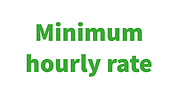Go to main menu | Go to submenu | Skip to content
Poland with its family policy among EU leaders
28-11-2017Poland is still ranked 4th among EU Member States in terms of the ratio of financial support for families to their average salary – according to the latest PwC survey.
The aim of the PwC survey was to determine aid offered to the average family in each EU Member State in 2017. Simulations were carried out for each of the states according to specific assumptions. The survey adopted a family model of both parents working and earning the national average salary, having healthy children aged 4 and 8 years.
The survey takes into account the most important elements of financial support for families with children both in
tax systems and with respect to family benefits in EU Member States. The survey did not cover a basket of goods, free meals, medicines and textbooks for children or individual deductions (not for children).
Significant support for Polish families
With the ratio of financial support to the average salary at 7.9%, Poland is ranked 4th among EU Member States. Only France, Hungary and Austria are ahead of us. It is well above the EU average. The ratio of the average financial support for families to their salary in all EU Member States is 4.9%.
Average aid in Poland and the EU
The PwC survey reveals that financial support for families in Poland amounts to PLN 8 225 per year. It is close to the EU average aid (PLN 10 178 per year).
Birth rate growth
About 272 thousand children were born in Poland between January and August this year. Compared to the corresponding period last year and two years ago, it is respectively 7% and 10% higher. The number of births in individual months (except for April) was higher than in the same months last year.
"If the upward trend continues until the end of 2017, the number of born babies throughout 2017 should exceed 400 thousand which would be the highest result since 2011. Over the past 16 years, the threshold of 400 thousand births per year was exceeded only three times (i.e. in 2008-2010). It is also worth quoting the CSO forecast of 2014 according to which about 346 thousand children were supposed to be born in Poland in 2017…,” as stated by PwC.
Flexible forms of work less popular
According to the PwC survey, 25% of Poles are not keen on working flexible hours. It is 12% above the EU average. At the same time, 40% of enterprises do not allow employees to work flexible hours. Part-time work in Poland is thus not as popular as in other EU Member States.
9.7% of women and 8% of men in Poland work on a part-time basis, while in the Netherlands, for example, it is respectively 76.5% and 26.2%.
Flexible forms of work allow for, inter alia: accumulating hours in order to take them back later (including in the form of whole days off) or/and changing working hours. In Germany, 62% of employers offer all these forms. In Poland, it is 44%.
Office work vs. remote work
The share of people working from home in the total number of employees in Poland is 13.1%. The EU average is only 0.4 percentage points higher. Remote work is most popular in Denmark (29.2%) and least popular in Romania (0.6%).
Women active in the labour market
According to PwC, women spend ever more time at work. They work over 40 hours a week, over 8 hours a day and over an hour longer than the EU average. Women in Italy, Denmark, Ireland and Estonia spend less time at work than women in Poland.
Importantly, the share of women in the total number of employees in Poland is rising systematically. It is about 50% at present.





